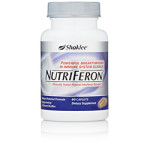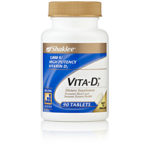Dental Care the Important Link to Overall Health
 Aging and Oral Health: A New Paradigm Of Health
Aging and Oral Health: A New Paradigm Of Health
Why your teeth should hang around into old age.
- By Steven Lin –
You’d be amazed to consider how our perception and understanding of dental health and ageing have changed in such a short period of time. While dental conditions can certainly become more common in the elderly, there are many misconceptions that surround the connection between ageing and our teeth.
One of the biggest myths about ageing and oral health is the belief that losing teeth is a normal part of getting older.
This is absolutely not true – your teeth should last you a lifetime. The status of your dentition and mouth are paramount to your overall health and will contribute to your overall longevity. Translation? If you look after your teeth, you’re looking after the rest of your body and setting yourself up for longer lasting and far better quality health.
Long-term mismanagement of your mouth can result in chronic gum inflammation, commonly known as gingivitis (bleeding gums) that will eventually lead to the deterioration of the structures that are the foundations of your mouth and can lead to tooth loss in old age.
Ageing and Risk Of Disease
There are some interesting and often misunderstood interplays between conditions of the mouth and age.
- Tooth decay – Generally, our risk of tooth decay is at its highest in our infant and teen years. As people age, with the adult dentition coming into formation, newly forming tooth decay is less likely. However, that’s not to say we don’t need to worry about new holes.
- One type of decay that does become more prevalent is root caries. These are lesions that appear on the root surface of the teeth that is usually covered by the gums. Conditions impact the level of saliva production can significantly increase the risk of root decay.
- Other areas that become a risk of decay are previous dental restorations that aren’t monitored or replaced in time.
- Gum disease – As we age, our risk of gum disease With every birthday, we need to be more and more prudent in monitoring, maintaining and caring for our gum health. There are many other factors that.
- Oral cancer – The risk of oral cancer increases with age. While heavily influenced by certain lifestyle factors, as we age we need to become particularly vigilant in our screenings for oral cancer.
Dry Mouth in Older Patients
Dry mouth can be an issue for seniors, which can be related to medications or medical conditions. Saliva carries minerals and immune cells that help to protect the teeth from cavities and infections, so with a reduced flow of saliva, you will be more prone to oral health problems. The balance of calcium in your mouth, which is distributed between teeth and oral bacteria, is in a delicate interplay in your saliva.
Habits that produce short-term lack of saliva more harmful to your teeth including the exposure to simple carbohydrates are worsened by dry mouth. Your dietary habits like sucking on mints or lollies mean that your teeth will be subjected to acid attacks. Make sure you’re drinking plenty of water, preferably enough so that you never feel ‘thirsty’ and have a chat with your dentist to see which products they recommend to manage dry mouth.
Medical Conditions That Affect Oral Health
Some medical conditions are linked to and can affect the oral health of older patients.
Some examples include cancer, diabetes and cardiovascular disease. Poor oral health can make some conditions worse, so it is important to let your dentist know if you have any illnesses, so he or she can take certain factors into account when treating you.
There are strong links between people who have gum disease and heart disease, with the likelihood of heart attack a significant factor in severe gum disease.
Type II diabetes, which is much more prevalent in the elderly population, can worsen conditions in the mouth due to the impairment of the immune system.
Medications and Your Mouth
Elderly people are at the highest risk category for taking multiple medications at one time. There are a number of medication types that can impact the oral cavity.
Dry mouth, as discussed before, disrupts the roles carried about across your mouth. Medications that limit saliva flow can impact your risk for diseases, such as tooth decay. These include:
- Anti-depressants: There are many subsets of anti-depressant drugs that reduce saliva flow by dampening the reaction of neural cells. The effect is that they also dampen down the production of saliva from your saliva glands. Therefore, people who are taking anti-depressants are at higher risk of conditions like root-decay.
- Parkinson’s Medication: Similarly to anti-depressants, Parkinson’s medications reduce saliva flow.
- High blood pressure drugs: Some drugs can act to decrease the amount of saliva flow when taken to reduce hypertension. Others may give the ‘sensation’ of dry mouth without reducing the actual flow of saliva.
- Bisphosphinates: These drugs impact the rate of bone turn over in the mouth and can increase the risk of complications such as osteoradionecrosis after dental procedures like tooth extraction.
If you’re taking these medications, or even other types such as blood sugar regulation drugs, it’s imperative to see your dentist regularly to make sure you’re not at risk of complications.
Gum Change as You Age
As you get older, your gums can often recede due to traumatic processes we put our mouth through. Three things that are particularly important to be aware of are:
Your receding gums may expose the root surface of your teeth, which is not protected by tooth enamel. As a result, you may find increased sensitivity to cold and hot food and drink. Using toothpaste designed to help sensitive teeth may relieve sensitivity, but be sure to check with your dentist in case there are more serious issues going on, for example decay or a damaged tooth.
Exposed root surface means that the roots of your teeth are a potential target for tartar and decay.
Older patients are more prone to gum disease.
Therefore, it is extra important to keep up with your dental routine.
Tips for Keeping Older Teeth in Top Shape
Here are 6 helpful tips for keeping older teeth in the best shape possible.
- Limit Sweet and Starchy Food and Drinks
Both sweet and starchy products are the worst things for your teeth, no matter if you’re young or old. Sugar creates acid that can erode your teeth, and starchy foods cling onto teeth and forms plaque, resulting in a build-up of bacteria.
Not only will you be doing your health a huge favour by cutting out sweets and processed carbohydrates, but your teeth will thank you for it too. Avoid artificial sweeteners like aspartame, which is likely to make you crave more sugar and has been associated with weight gain and increased risk for diabetes, high blood pressure and heart disease.
- Brush and Floss Every Day
Make sure you continue to brush your teeth twice a day, and floss once a day. Brushing and flossing thoroughly provides a great line of defence against plaque, decay and gum disease.
- Visit Your Dentist Regularly
By visiting your dentist regularly, it can help you to catch any potential dental problems at their earliest stages. If you delay treatment, you may end up with permanent damage.
When you’re at the dental clinic, your dentist can give your teeth a thorough, professional clean, which gets to all the hard spots that you can’t reach and will leave your teeth squeaky clean and your gums nice and healthy.
- If You Smoke, Quit
Smoking can accelerate damage to your teeth and oral tissues by lowering your immune system and reducing the amount of oxygen in the blood. Smokers are especially prone to gum disease, so combined with the normal ageing process, oral health can become a major concern. It’s also a major risk factor in the development of oral cancer.
- Keep Dental Work Well Maintained
For those of us who had dental work in the past, making sure that you give it the best chance of lasting well into your old age is a big consideration in the longevity of your teeth. Fillings, crowns and even implants may have life spans that need to be monitored, but specific instruction from your oral health professional will do wonders to maintain.
If you wear dentures, make sure you keep them clean and follow your dentist’s special care instructions. Just like natural teeth, dentures can last a long time if you take good care of them. At the first sign of any soreness, bad breath or discomfort, make an appointment to see your dentist. Regular check-ups are important for denture wearers – your dentist will tell you how often he or she would like to see you.
- A Well Balanced Diet Rich With Immune and Bacteria Boosting Foods
A healthy, balanced diet will not only make you feel better in the inside, but it’ll help keep your teeth in much better condition too. Make sure to include fermented foods in your diet to help balance the oral bacteria that live in your mouth. These may include fermented dairy like cheese, butter, kefir and cultured yoghurt. Other fermented foods include cultured vegetables like sauerkraut and kimchee or try adding kombucha or miso to your daily diet.
Some foods can help to boost your immune system, which can be especially helpful as you age, protecting you against infections and illness – even in your mouth. Some great immune boosting foods include garlic (fresh, raw), coconut oil, leafy greens and spirulina. Vitamin D3 is also fantastic for your immune system and your mental health, yet many people are surprisingly deficient. Make sure you get out for a walk in the sun every day to help reinforce your body’s natural defences.
Sources:
Demirci M, Tuncer S, Yuceokur AA. Prevalence of Caries on Individual Tooth Surfaces and its Distribution by Age and Gender in University Clinic Patients.European Journal of Dentistry. 2010;4(3):270-279.
Kelbauskas E, Kelbauskiene S, Nedzelskiene I. [The influence of smoking on oral health]. Medicina (Kaunas). 2005;41(5):418-26.
Scelza MF, Silva Dde, Ahiadzro NK, Da silva LE, Scelza P. The influence of medication on salivary flow of the elderly: preliminary study. Gerodontology. 2010;27(4):278-82.
Scully C, Porter S. Oral cancer. Western Journal of Medicine. 2001;174(5):348-351.
Van Dyke TE, Dave S. Risk Factors for Periodontitis. Journal of the International Academy of Periodontology. 2005;7(1):3-7
Shaklee products that support dental health- as mentioned in this article are:
Vitamin D plays a major role in protecting your health and is vital for overall well-being. Vita-D3® contains 1,000 IU of vitamin D3, the most potent form of vitamin D.
To get more information on Vitamin D and to buy click here
Scientists and medical communities have identified interferon as being crucial to healthy immune function.
NutriFeron is an exclusive, patented formula, which provides a proprietary blend of four plant extracts designed to naturally increase levels of interferon and provide immune support at the cellular level. Click Here to get information or buy Nutriferon


